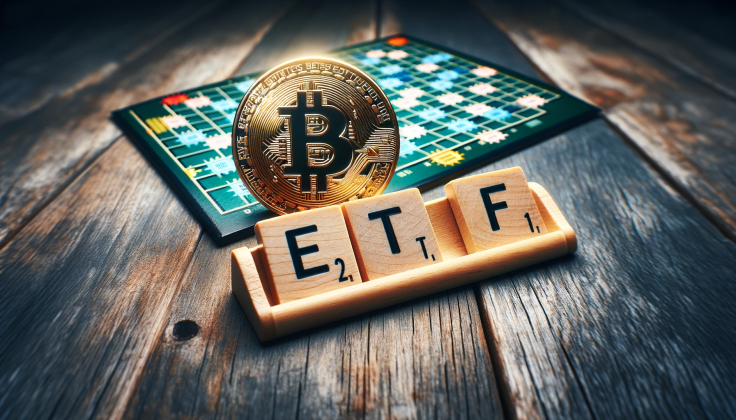
KEY POINTS
- Hong Kong has reportedly accepted the first application for a spot Bitcoin ETF
- South Korea's financial regulator chief will meet with the SEC's Gensler in May for spot BTC ETF talks
- Japan has moved closer to allowing investment funds and venture capital firms to own digital assets
When the U.S. Securities and Exchange Commission (SEC) approved 11 spot Bitcoin exchange-traded funds (ETFs) in January, everyone expected the cryptocurrency world to celebrate and trigger a market-wide rally of cryptocurrencies and other tokens.
What the world didn't expect is the ripple effect it would have on other jurisdictions – at times pushing global regulators to voluntarily look into the possibility of their own spot BTC ETFs, and at times "forcing" governments to reconsider stringent regulations on the trillion-dollar digital asset sector.
As the crypto world gears up for Bitcoin's fourth halving event, which is expected to take place in April 2024, let's take a look at where the rest of the world stands in terms of accepting digital currencies.
In Asia, in particular, there has been increasing interest among some countries that watched the American regulator's decision on a product that still remains widely contended by the traditional banking system.
Hong Kong's Securities and Futures Commission (SFC) has reportedly accepted the first application for a spot Bitcoin ETF, signaling a significant shift in the Chinese special administrative region's Bitcoin approach. It is worth noting that Hong Kong maintains its own financial and legal system. While China has an apparently restrictive attitude toward cryptocurrencies, Hong Kong is expected to take a more crypto-friendly approach.
South Korea has also expressed interest in considering spot BTC ETFs as Lee Bok-hyun, the head of South Korea's Financial Supervisory Service (FSS) is reportedly scheduled to discuss the matter with SEC chair Gary Gensler in May. The talks will focus on whether the rising Asian nation should include "not only Bitcoin spot ETFs but also NFTs (non-fungible tokens) in the virtual asset field."
In Japan, "measures will be taken to add crypto assets to the list of assets that can be acquired and held by investment limited partnerships (LPS)," according to a proposed bill in February that could bring the country closer to allowing venture capital firms and other investment funds to own digital assets. Such a move does not specifically mean Japan's financial regulator will consider spot Bitcoin ETFs, but it does indicate that Tokyo has become more open to crypto products ever since the SEC's historical decision.
Over in Europe, there is also an apparent transition following the SEC's move. The United Kingdom's Financial Conduct Authority (FCA) said earlier this month it will not block requests from Recognized Investment Exchanges (RIEs) to develop a listed market segment for crypto asset-backed exchange-traded notes (ETNs). The major difference between ETFs and ETNs is the latter are more like bonds that are unsecured so they carry more risks.
Just this week, the London Stock Exchange said it will roll out a market for BTC and Ether (ETH) ETNs late in May, signaling a more crypto-friendly approach toward digital assets.
Bitcoin Foundation chair Brock Pierce told International Business Times that "it makes complete sense" for the London Stock Exchange to follow suit after the SEC made history in January. "The U.S. often leads the world, and the world looks to America for leadership." He went on to predict that "we'll likely see similar actions all around the world."
Meanwhile, eyes are back on the SEC as the crypto community waits for its decision regarding spot ETH ETFs. Earlier this month, the regulator said it has not yet made a decision regarding BlackRock's iShares Ethereum Trust and Fidelity's Ethereum Fund applications. It asked "interested persons" to provide comments regarding the applications. The SEC previously said it needs more time to consider Ethereum ETFs.
For now, some companies that banked on the glory brought forth by spot BTC ETFs are enjoying the gains. BlackRock CEO Larry Fink said he was "pleasantly surprised" by the asset management giant's IBIT as it logged $13.5 billion in flows during the first 11 weeks since it started trading. He also said he was "very bullish" on Bitcoin's long-term viability.
BlackRock CEO Larry Fink says the $IBIT Spot #Bitcoin #ETF is the fastest growing ETF in history
— Simon Dixon (@SimonDixonTwitt) March 27, 2024
pic.twitter.com/NOsDlFgROi
Many Asian countries have yet to even fully understand how cryptocurrencies work, but with three jurisdictions taking the bold leap towards opening up their markets to digital assets, it may only be a matter of time before the others follow suit.







